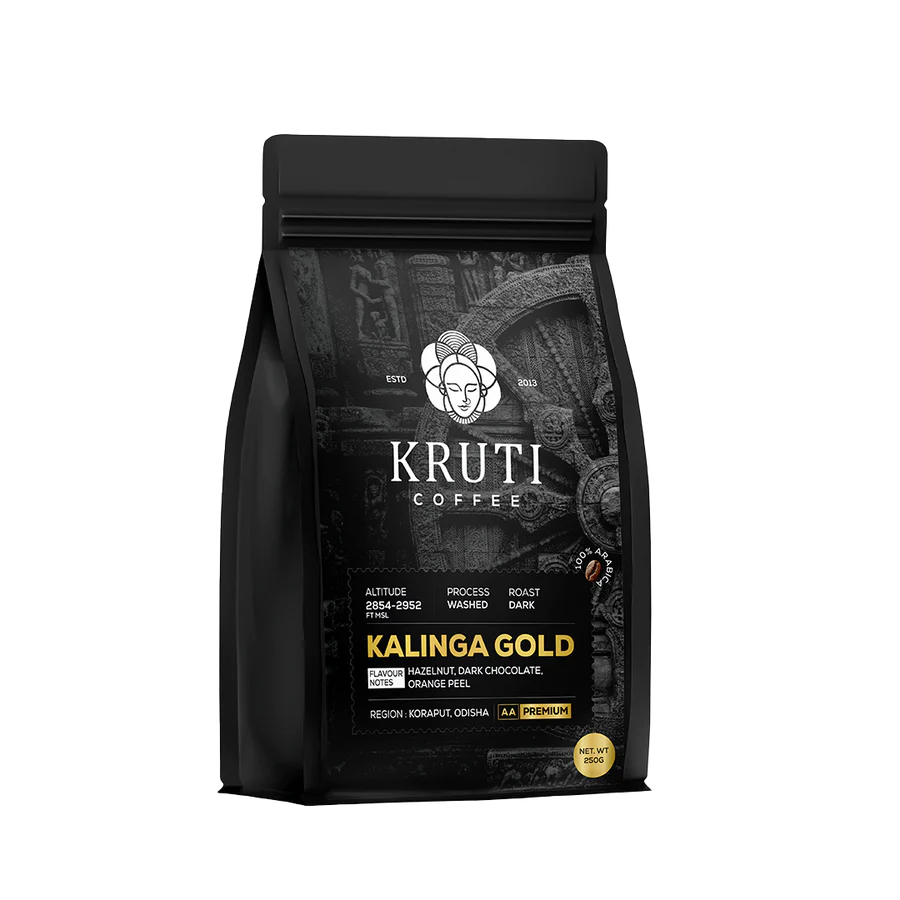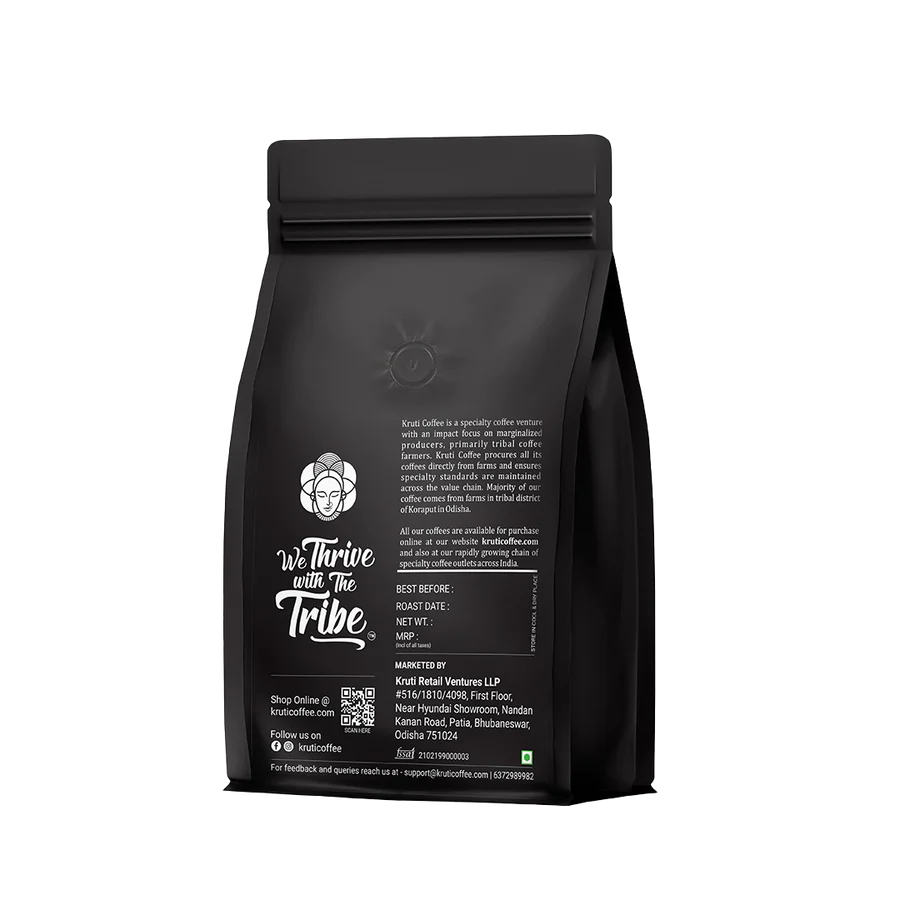Kruti Coffee – Kalinga Gold ( 100% Arabica Coffee Beans, Dark Roast, 250 Gm)
₹550.0
-
Product Info
100% ARABICA | BLEND OF COFFEE FROM KORAPUT
PROCESS: WASHED FLAVOUR: HAZELNUT, ORANGE PEEL & DARK CHOCOLATE
ROAST: DARK ALTITUDE: 2854-2952 FT MSL
ORIGIN: KORAPUT,ODISHA
QUANTITY: 250 GRAMS
Please select the grind preference based on the equipment you will be using to brew your coffee. We will grind as per your preference, before shipping the coffee to you (with best compliments from us).
The coffee in this packet is from the 2021-2022 batch of washed coffee from two farms under our fold in Koraput. Both the coffees have been carefully roasted and blended in the right proportion to get a magical brew. This signature blend of ours is a tribute to the rich culture, civilization and history of Kalinga, the beautiful state of Odisha.
About Kalinga Gold:
Kalinga Gold is the most premium blend developed by Kruti Coffee ever. This blend has been developed by combining only the AA Washed Green beans from Kindiriguda and another farm under our panel in Koraput.
- Description
- Additional information
- Reviews (0)
- Q & A
- Sustainability Remark
- More Offers
- Store Policies
- Inquiries
| brands | Kruti Coffee |
|---|---|
| Weight | 250 grams |
You must be logged in to post a review.
Q & A
Organic coffee is often considered more sustainable compared to conventionally grown coffee due to several factors. Here are some key aspects of the sustainability of organic coffee:
Environmental Impact: Organic coffee farming practices prioritize the use of natural methods to enhance soil fertility, control pests, and manage weeds. This reduces the reliance on synthetic pesticides, herbicides, and fertilizers that can harm ecosystems, soil health, and water resources. By avoiding these chemicals, organic coffee cultivation helps protect biodiversity, promotes healthier ecosystems, and minimizes water pollution.
Soil Health: Organic farming practices, such as the use of compost, cover crops, and crop rotation, focus on building and maintaining soil fertility. These methods help improve soil structure, increase organic matter content, and enhance water retention capacity. Healthy soils support long-term crop productivity, reduce erosion, and contribute to carbon sequestration, thus mitigating climate change.
Preservation of Ecosystems: Organic coffee farms often exist within or adjacent to natural habitats such as forests. By avoiding the use of harmful chemicals, organic practices help preserve these ecosystems, which provide essential services such as habitat for wildlife, water regulation, and carbon storage.
Water Conservation: Organic coffee farming typically employs practices that minimize water consumption and promote efficient water use. For example, mulching and shade-grown techniques reduce evaporation, maintain soil moisture, and prevent water runoff, thus conserving water resources.
Social Considerations: Sustainability encompasses social aspects as well. Organic coffee production often involves fair trade and social certification programs that prioritize fair wages, safe working conditions, and community development. These initiatives aim to support small-scale farmers, empower local communities, and foster sustainable livelihoods.
While organic coffee has numerous sustainability benefits, it is important to note that the overall sustainability of any agricultural product depends on various factors, including transportation, processing, packaging, and consumer choices. To make a more sustainable choice, look for organic coffee that is also certified by reputable organizations such as Fair Trade, Rainforest Alliance, or USDA Organic, as these certifications ensure adherence to specific sustainability standards.
General Inquiries
There are no inquiries yet.



















Reviews
There are no reviews yet.